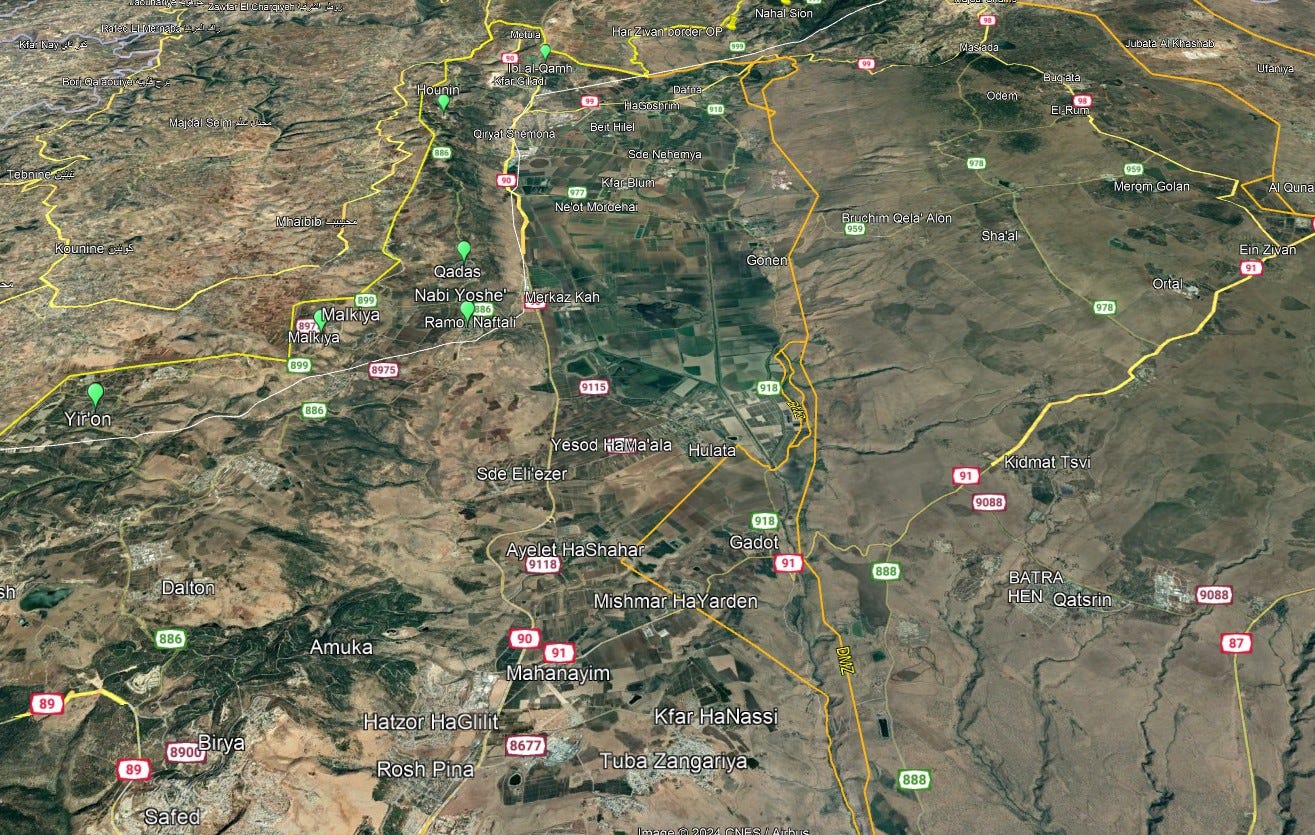Israel - Lebanon War and the Risk of Regional Escalation
What everyone is missing about the likely Israel - Lebanon war and the commercial implications for Iraq, the Gulf, Israel, Lebanon, Cyprus, Egypt and Jordan.
US special envoy Amos Hochstein, an Israeli citizen, visited Lebanon on 18 June to convey final warnings of an impending Israeli assault on Hezbollah’s positions in South Lebanon. In response, Hezbollah warned that in a coming war, there would be no limits to its escalation. This piece examines the potential issues that are not being sufficiently discussed, in our view, including risks to Israeli sovereignty in the north and in the Golan and including risks to commercial, industrial, energy, aviation and shipping assets, in Egypt, Jordan, Iraq, the Gulf and Cyprus. We also discuss the risk of regional escalation and the impact on the stability of Middle Eastern states allied with Israel. Please contact us to discuss in more details or to give you a tailored risk forecast.
Change in Lebanon risks compared to 2006: Israel bombarded Lebanon’s electricity infrastructure, energy storage facilities, roads and bridges, as well as the port and airport, though not at full force, during the 2006 War. It had similarly struck civilian targets in 1996, 1993 and 1982. This time, Hezbollah has imposed deterrence, in that it has shown Israel that it can respond in kind to Israeli strikes targeting civilian assets. As a result, thus far, the two sides have fought within “rules of the game”, negotiated and imposed by firepower, which has kept them from going all-out against civilian targets. If this deterrence holds, the damage to assets discussed below would be less extensive and severe. If deterrence fully breaks down, and, as Hezbollah warns, the war is fought without restraints, then the extent of damage to both Israel and Lebanon would be unprecedented, and much greater than 2006.

Military considerations: Hezbollah has shown that it can detect Israeli movements in the deep rear, overfly Iron Dome and David’s Sling batteries, attack Israeli radars, and strike Israeli bases in Safed and Tiberias. These are the backbone of Israel’s defensive infrastructure in the north. Hezbollah can strike Israeli troop concentrations before they move to cross the border with Lebanon. This raises the number of potential Israeli casualties, and forces Israel to dedicate its air defence resources to protecting troop concentrations, bases and movements, reducing the defences available for civilian targets and infrastructure. Iran’s strike on Israel showed that it has weapons capable of accurately striking Israeli airports, which it would transfer to Iraqi militias and to Hezbollah to enable their use in a large-scale war.
Risks to the Golan: Hezbollah has so far refrained from activating the Golan Heights front in Syria. However, the group, in partnership with Iraqi and Syrian militias, likely has the ability to conduct attacks there. In an all-out war, there would likely be repeated strikes on Israel’s Golan border positions intended to disperse and overstretch Israeli forces, with Iraqi militias playing a key role under Hezbollah’s command. Furthermore, Hezbollah may seek to capture the Sheb’a Farms and Mount Hermon, contested between Lebanon, Israel and Syria. This would put Hezbollah on higher ground than Israel in the Golan and would threaten Israel’s ability to hold the Golan. Any businesses in the Golan would subsequently be at risk of repeated attacks.
Risks to Israeli control of the Galilee: If Hezbollah captures the Sheb’a Farms, this would likely be part of an operation to capture six villages in the Galilee hills on the Israel Lebanon border (Hezbollah and some Lebanese claim these villages, along with a seventh further west, as historically Lebanese). These villages and the Sheb’a Farms oversee the entire Galilee Panhandle (the area extending from Tiberias Lake to the Golan and the Lebanese border). Israel would find its position in the Galilee Panhandle untenable, permanently. It would lose the ability to govern this area. No businesses there would be viable, no displaced persons would return. Assets in the Panhandle would face severe risk of repeated attacks that cause near total write-offs.


Please become a paid subscriber to see risks to aviation, shipping, energy, industrial assets and to see the regional impact.
Keep reading with a 7-day free trial
Subscribe to Modad Geopolitics to keep reading this post and get 7 days of free access to the full post archives.



